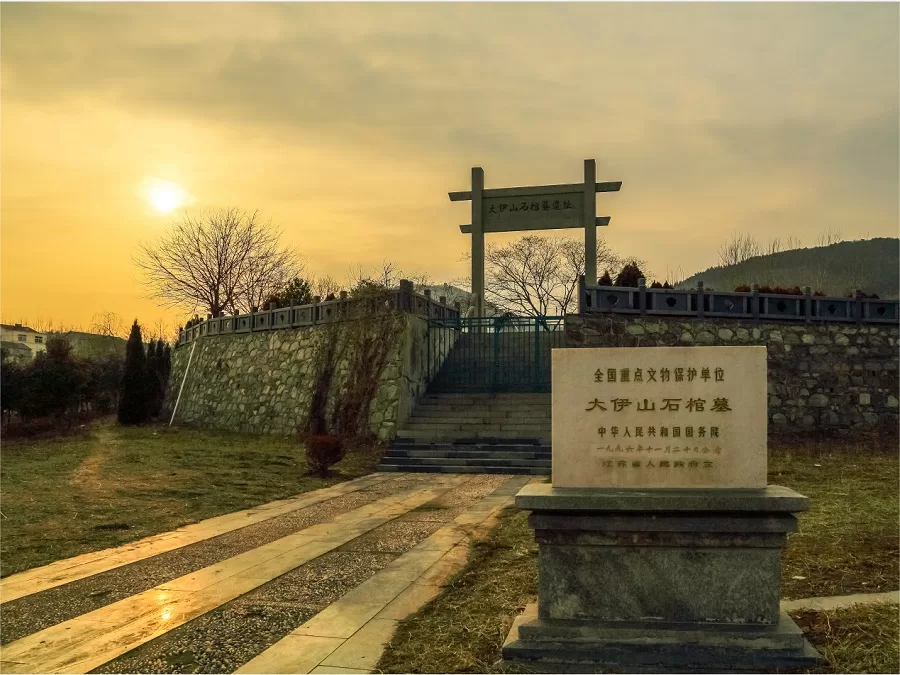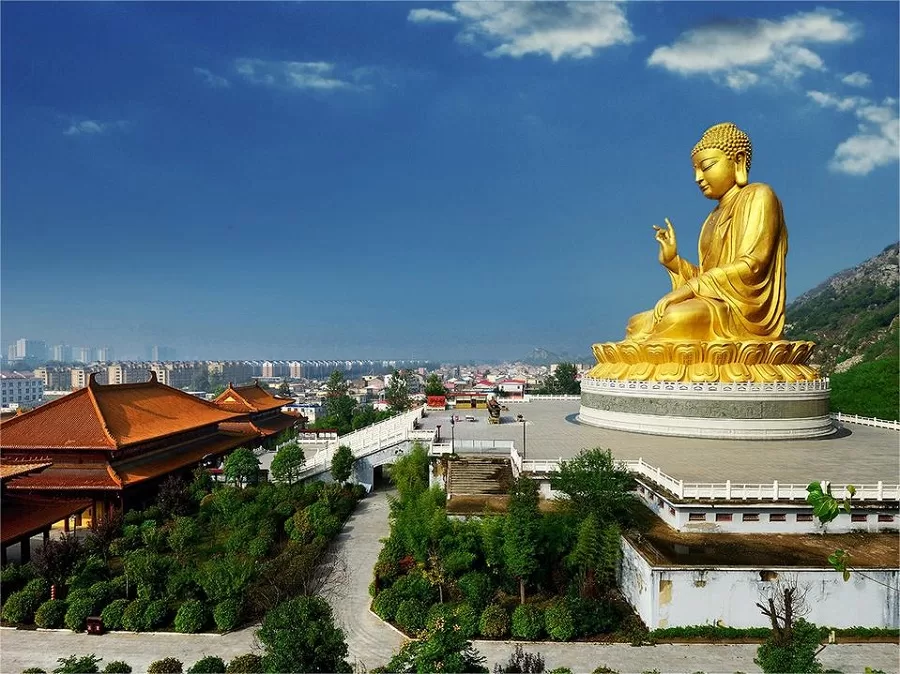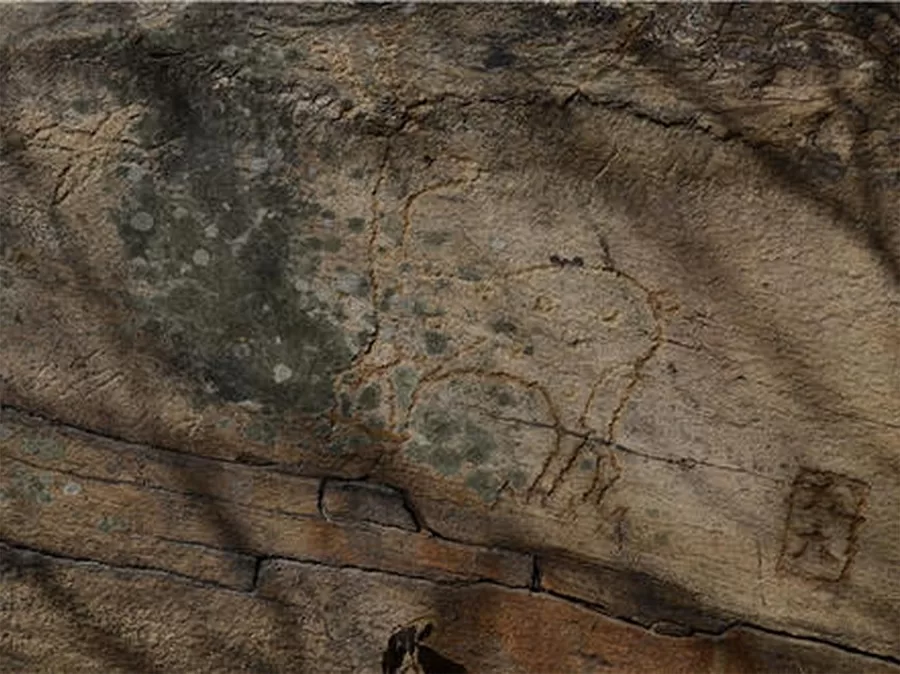Dayi Mountain (大伊山), located at the northwest corner of Guanyun County, Lianyungang City, has a history spanning 2 billion years, encompassing an area of 10 square kilometers and comprising 12 peaks. The highest peak reaches an elevation of 226.7 meters. The mountain earned its name from the fact that Yi Yin, who is renowned as the “First Wise Minister of Huaxia” and the progenitor of Chinese cuisine and the creation of traditional medicinal concoctions, spent his later years in seclusion here.
Standing as the first significant mountain north of Nanjing within Jiangsu Province, Dayi Mountain is often referred to as the “First Sacred Mountain of the Huai North Plains.” The mountain is adorned with numerous peculiar rocks, caves, ancient stone coffins, and rock paintings that bear witness to its ancient history. Numerous outdoor enthusiasts and exploration teams are drawn to the millennium-old relics and the spirit of adventure they offer.
Dayi Mountain boasts two main entrances, namely the South Gate and the East Gate. The South Gate, situated close to the Guanyun Express Bus Station, serves as the primary starting point for visitors arriving by car to embark on their mountainous journey.
Table of Contents
Basic Information
| Estimated Length of Tour | 2 – 3 hours |
| Ticket Price | 60 RMB |
| Opening Hours | 8.00 – 17.00 |
| Telephone Number | 0086-0518-88856008 0086-0518-85085584 |
Location and Transportation
Dayi Mountain graces the northwest corner of Guanyun County, situated just over 30 kilometers south of Lianyungang’s city center. For visitors arriving at Guanyun High-Speed Railway Station, reaching the scenic beauty of Dayi Mountain is a breeze. The most convenient transportation option is to board the bus Tourist Line 1, which directly connects the railway station to the southern entrance of the scenic area, specifically the South Gate (Shifo Temple Station). Or, you can also take a taxi to cover the 8 kilomters.
Highlights of Dayi Mountain
Ancient Stone Coffins: A Glimpse into Early Civilizations

At the eastern foothills of Dayi Mountain, atop the 20-meter-high Qingfeng Ridge, lies the largest burial ground of Neolithic stone coffins in the country. This archaeological marvel reveals a maternal lineage communal society dating back over 6,500 years, making it the earliest and best-preserved site of its kind in China. The site encompasses 64 stone coffins, six sets of human skeletal remains, and over 150 unearthed artifacts. Positioned at the crossroads of northern and southern cultures, it exhibits characteristics of both the Yellow River downstream Neolithic culture and the Yangtze River downstream Neolithic culture.
Two remarkable discoveries within the stone coffins draw particular attention. First, 27 graves feature a unique burial practice where pottery bowls, the primary food vessels, cover the deceased’s head with a small hole hammered into the bowl’s base. Second, six pottery bowls exhibit engraved symbols on their bases, considered by experts as the earliest signs of Chinese written language.
Stone Buddha Temple: A Spiritual Oasis in the Mountains

In times past, Dayi Mountain was adorned with over 20 temples, making it a sacred haven for those seeking enlightenment and spiritual transcendence. Revered as the “First Sacred Mountain of Huai North Plains,” it held a pivotal role in the religious and cultural landscape of northern Jiangsu and southern Shandong. Among the ancient temples, the Stone Buddha Temple stands out as a quintessential representative. Originally built in the second year of the Yuan Emperor’s reign (1313 AD), the temple underwent several cycles of construction and destruction. The present-day Stone Buddha Temple, modeled after Zhenjiang’s Jinshan Temple, was initiated in 2002.
The temple’s focal point is the outdoor golden sitting Buddha, situated behind the Grand Hall. Ascending the steps to the Buddha’s feet provides a breathtaking view, with the pedestal towering at 3.3 meters and the Buddha statue itself reaching an impressive height of 33 meters, exuding a majestic presence.
Rock Carvings: Artistic Treasures from the Ages

Dayi Mountain’s rock paintings stand out both in artistic technique and the profound meanings they encapsulate, distinguishing themselves among similar national rock art. Notable among these is the Deer Stone Carving from the Yuan dynasty, designated as a Jiangsu Provincial Cultural Heritage site. Additionally, there are maritime-themed rock carvings, depictions of beautiful women, and the enigmatic “Eastern Celestial Book,” a star map etched in stone.

